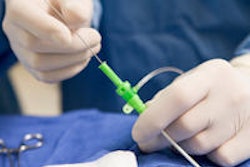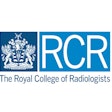Half of patients with severe gastrointestinal hemorrhage do not receive the interventional radiology (IR) services they need, according to a new U.K. report.
The National Confidential Enquiry into Patient Outcome and Death (NCEPOD) review found half of hospitals are lacking proper care for these patients.
The Royal College of Radiologists (RCR) said this new report demonstrates the harm patients experience because they do not receive IR care, and the organization urges a commitment to increase the number of interventional radiologists across the U.K. to reduce this unnecessary loss of life.
The British Society of Interventional Radiology (BSIR) said IR services for such patients should be available onsite similar to endoscopy, surgery, critical care, and anesthesia. And while some neighboring hospitals can offer improvements in patient care, for some patients with severe gastrointestinal hemorrhage, transfer between hospitals can place them at greater risk.
"The lack of IR provision means greater use of more invasive and costly surgery," the BSIR said. "By using IR to treat this type of hemorrhage, patient outcomes are improved, the length of hospital stay is reduced, and costs to the NHS [National Health Service] are contained."



















